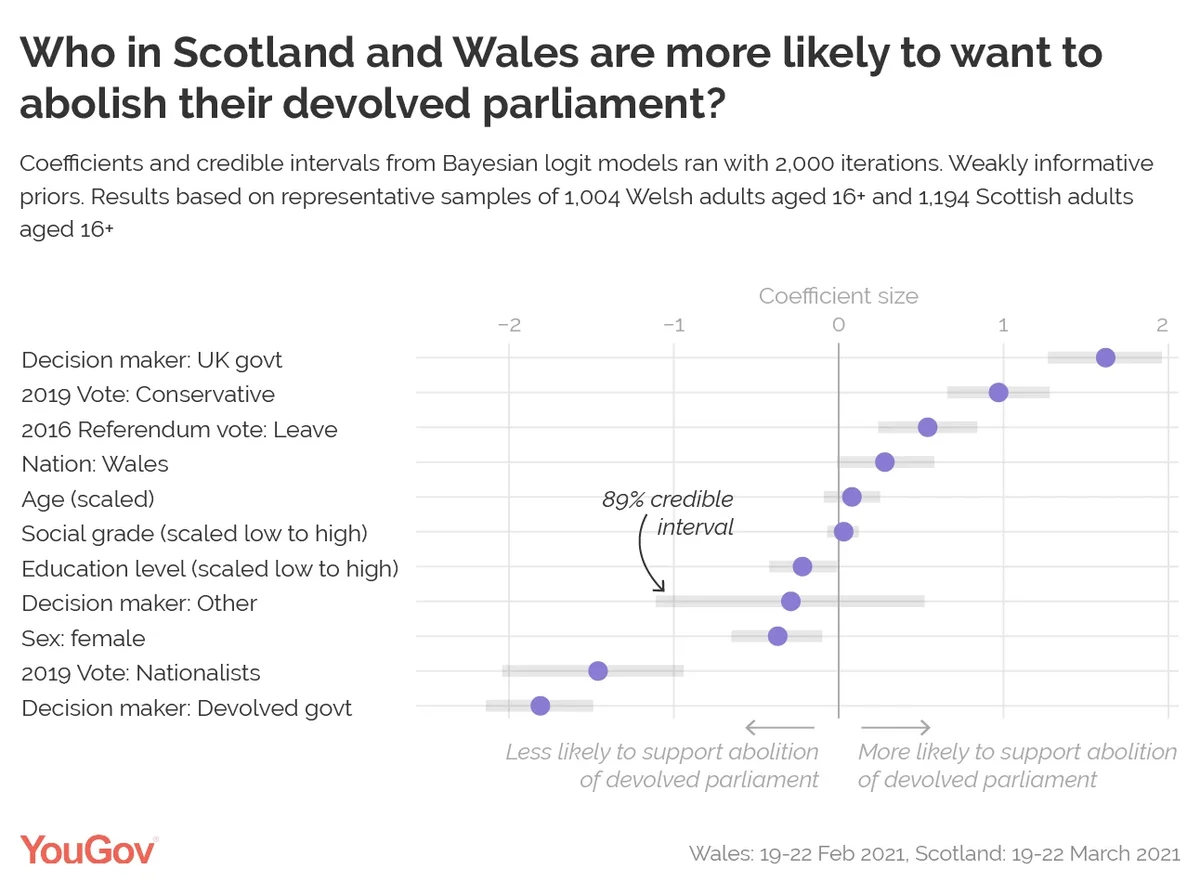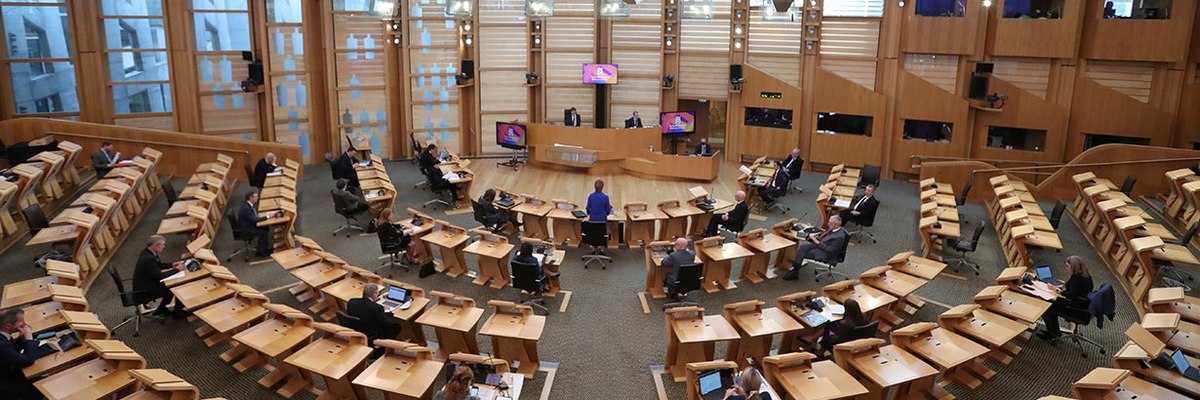Introduction
On 6 May, voters will head to the polls up and down the United Kingdom in what is being dubbed a ‘Super Thursday’ of local, devolved government, mayoral, and police and crime commissioner elections.
Two of the most high profile contests are the Welsh and Scottish Parliament elections, where Labour and the Scottish National Party are seeking to secure majorities respectively.
Since power was devolved to Wales and Scotland in 1998, voters in both nations have had five opportunities to elect representatives to their respective chambers. While turnout has not been as high for these elections as they have been for UK-wide general election contests, there is no shortage of democratic engagement with the devolved institutions (Scully, Jones, and Trystan, 2004; Jeffrey and Hough, 2009). Furthermore, devolution and participation in devolved elections has coincided with changes in senses of ‘national pride’ and ‘identity’ in Scotland and Wales (Bradbury and Andrews, 2010; Ichijo 2012; Curtice 2006).
But there is some inequality in the way in which devolved government and elections are engaged with and treated between the two nations. The pace of devolution has been much faster in Scotland than in Wales, with the Scottish Parliament still enjoying greater powers and passing more primary legislation than its Welsh counterpart. Scottish elections often attracting more attention both within and beyond Scotland than Welsh contests, and elections north of the border are distinctively more Scottish than Welsh elections are distinctively Welsh (Scully, 2013; see also Schakel and Jeffrey, 2013)
Further, while many parties and voters champion and support the cause of devolved power and self-government in the nations of Scotland and Wales, a significant amount of Welsh and Scottish residents do not.
In fact, our February poll of 1,004 Welsh adults shows that one in four (28%) would vote to abolish the Senedd entirely, if given the chance in a referendum. Meanwhile, in our latest Welsh Senedd vote intention poll, the ‘Abolish the Welsh Assembly Party’ are at 7% on the list vote, and look set to win anywhere up to five seats.
In Scotland, support for the continued existence of Holyrood is much stronger, with 65% of respondents indicating that they would vote against abolishing the Scottish Parliament (compared to just 43% of Welsh respondents). It also looks unlikely that any explicitly anti-devolution parties will win parliamentary seats. Nonetheless, one in five Scottish people (20%) would support dissolving the Scottish Parliament, given the chance.
Figures weighted to be representative of Scottish population in terms of socio-demographics and political splits. N=1194, fieldwork conducted between 19th and 22nd March 2021. See published tables for cell counts.
Who are the voters in favour of dismantling regional parliaments, and where do they think decisions on issues that affect Wales and Scotland should be taken? Are they all in favour of returning power to Westminster, or somewhere else? Are there partisan or EU referendum divides? And why are there more pro-abolishment voters in Wales than in Scotland?
Who supports abolishing devolved parliaments?
Support for abolishing the Welsh and Scottish parliaments looks broadly consistent across the categories highlighted in Table 1, below. In each nation, a far higher proportion of the oldest voters (aged 65 and above) are likely to support abolishment than the youngest voters (aged 16 to 24). Abolishment is also more popular among Leavers than Remainers, and among Conservative voters compared to Labour voters.
There do not seem to be a class divide of any real note in opinions on abolishing devolved parliaments, although we can see a gender divide, with 32% of men in Wales and 25% in Scotland were in favour of abolishing their national parliaments, while the figures for women are 23% and 16% respectively.
Perhaps the most notable finding was that 21% of 2019 Plaid voters indicated that they would be in favour of abolishing the Welsh Parliament, if a referendum was held on the topic. This falls to around one-in-six of those currently planning to vote Plaid in the 2021 Senedd elections (15% of Plaid constituency voters, 14% of list voters), but this still represents a significant number of voters who back the Welsh nationalists.[1]
Looking within each nation, the patterns noted above might explain why support for abolishing the Senedd may be a higher than it is for abolishing the Scottish Parliament at Holyrood. While the age and gender profiles of the two nations are broadly similar, Wales has a higher proportion of Leave voters than Scotland (53% v 38%), and a higher proportion of 2019 Conservative voters (36% v 25%). If support for abolishing devolved governments is correlated with these political dimensions, it makes sense that – on average – abolishment is more popular in Wales than Scotland. Equally, these factors may be proxy or alternative measurements for the distinctively Scottish v (not as) distinctively Welsh dynamics outlined by Scully (2013); Scotland is on average much less Conservative and Leave voting than the UK on average, while Wales is not.
If not at a regional parliament, then where do voters in favour of abolishing the devolved administrations think decisions impacting their communities ought to be made? Around half of those in favour of abolishing the Welsh and Scottish parliaments think that political decisions should be taken by the UK government, while around a third think that such power ought to perhaps be devolved further toward their local communities. So, it is not the case that all voters in favour of abolishing the Welsh and Scottish parliaments are necessarily against the devolution of power altogether – but rather its concentration at a national level.
We can only assume that the small percentage of pro-abolishers in Wales and Scotland who think that decisions affecting their local community are actually indeed best made at a devolved level are in favour of abolishing the Scottish and Welsh parliaments in their current form, and replacing them with some other kind of administrative unit.
Regression analysis – what predicts support for abolishment?
We can use a technique called regression analysis to investigate which of the above factors ‘best explain’ variation in individual respondents’ likelihood to be in favour of abolishing the devolved administration in their region. This statistical method calculates coefficients – numerical representations of the relationship between two variables – by estimating the amount of variance in a dependent variable (the quantity of interest – in our case, being in favour of abolishing devolved parliaments) associated with change in each given independent variable (factors which we suspect correlate with or cause change in our dependent variable).[2]
In our regression table below, we are looking for non-zero coefficient values with ‘credible intervals’ (the range of values which the coefficient could also plausibly take) which also do not cross zero (which indicates the estimated relationship is robust/reliable, and likely to describe a true and meaningful effect in the ‘real world’). These are the figures in brackets after the coefficients, and those which do not include zero in their bounds are highlighted in bold. All figures are rounded to two decimal places.
Table 3: Regression results
| Variable | Model 1 | Model 2 | Model 3 |
|---|---|---|---|
Age (scaled) | 0.181 [0.04, 0.32] | 0.08 [-0.08, 0.26] | 0.08 [-0.09, 0.25] |
Sex: female | -0.46 [-0.69, -0.22] | -0.37 [-0.64, -0.09] | -0.37 [-0.65, -0.10] |
Nation: Wales | 0.05 [-0.20, 0.30] | 0.26 [-0.02, 0.56] | 0.28 [-0.01, 0.58] |
2019 Vote: Conservative | 1.44 [1.99, 1.70] | 0.98 [0.68, 1.28] | 0.97 [0.66, 1.28] |
2019 Vote: Nationalists | -2.22 [-2.76, -1.72] | -1.49 [-2.09, -0.94] | -1.46 [-2.04, -0.94] |
2016 Referendum vote: Leave | 0.57 [0.32, 0.83] | 0.55 [0.24, 0.85] | 0.54 [0.24, 0.84] |
Education level (scaled low to high) | -0.25 [-0.42, -0.09] | -0.21 [-0.41, -0.01] | -0.22 [-0.42, -0.01] |
Social grade (scaled low to high) | 0.01 [-0.08, 0.08] | 0.03 [-0.07, 0.12] | 0.03 [-0.07, 0.12] |
Decision maker: UK gov. |
| 3.33 [2.95, 3.74] | 1.62 [1.27, 1.96] |
Decision maker: Devolved gov. |
|
| -1.81 [-2.14, -1.49] |
Decision maker: Local gov. |
| 1.73 [1.42, 2.07] |
|
Decision maker: Other |
| 1.27 [0.41, 2.13] | -0.29 [-1.11, 0.52] |
Model Intercept | -0.60 [-1.17, -0.02] | -2.28 [-3.00, -1.56] | -0.51 [-1.23, 0.18] |
Coefficients are log odds from Bayesian logit models ran with 2,000 iterations. Weakly informative priors. Data weighted to be representative of Welsh and Scottish populations in terms of socio-demographics and political splits. N=1004, fieldwork conducted between 19th and 22nd February 2021 for Wales. N=1194, fieldwork conducted between 19th and 22nd March 2021 for Scotland. Figures in square brackets are 89% credible intervals.
In model 1, we test only the socio-demographic and political variables. Here we can see that age, voting Conservative, and voting Leave are each correlated positively with being in favour of abolishing devolved parliaments in a hypothetical referendum. Voting for a nationalist party (either the SNP or Plaid Cymru) is correlated negatively, as is being female (rather than being male)[3] and having a higher education level.
Interestingly, the coefficient for nation: Wales – which tells us whether there is a correlation between being in Wales versus Scotland – is positive but the credible intervals include zero. This means we do not have enough evidence to suggest there is a connection between being in Wales and likelihood to support abolishment, and that our socio-demographic variables are much better at explaining this disposition. In short, this is further evidence in support of the theory outlined earlier that greater support for abolishment in Wales is driven by higher concentrations of the type of people who are likely to support abolishment, relative to Scotland.
In model 2, we add in the attitudinal question regarding where (which authority) respondents believe decisions should be taken which affect their local community. In model 2, we don’t see a coefficient for ‘devolved government’. This is because it is purposefully ‘left out’ of the estimation, so that the coefficients for the remaining three categories (‘UK government’, ‘local government’, and ‘other’) are all relative to those who answered ‘devolved government’.
In this model, we can see that adding the extra variable(s) has caused some of the coefficients and credible intervals to change. This is entirely expected, because we are adding in extra things for the model to consider when it is working out those coefficients and intervals (and some of the variance initially attributed to socio-demographics is now instead attributed to these attitudinal measurements).[4] Most notably, it looks like age is no longer a good predictor of support for abolishment.
Turning to the attitudinal questions, we can see that, relative to respondents who answered ‘devolved government’, those who think decisions should be taken at a UK level were far more likely to support abolishing the Senedd/Holyrood. Equally, those who answered ‘local government’ were also more likely to indicate they would vote “Yes” to abolishing their devolved parliament in a hypothetical referendum.
Model 3 changes the ‘reference category’ to be those who answered ‘local government’. This means that this time, we get a coefficient for ‘devolved government’ and the figures become relative to the ‘local government’ respondent category instead. We can now see that even relative to those who answered ‘local government’, respondents who answered ‘UK government’ are much more likely still to support abolishment. Those who answered ‘devolved government’ are, unsurprisingly, much less likely. So, this would suggest that holding the view that political decisions which affect your community are best made at Westminster is the strongest (but not at all the only) predictor of supporting abolishment.
We can visualise Model 3 using a coefficients plot, which gives us a graphical representation of the data in that column. Here, the coefficient values are represented by the purple dots, and the credible intervals by the lines. We can see those positive and negative relationships (with being in support of abolishing the Senedd/Holyrood) nice and clearly.

On the one hand, believing decisions which affect your local community should be taken by the UK government, voting Conservative in the 2019 general election, and voting Leave in 2016 are all positive correlates with supporting abolishment. Being female, voting for a nationalist party in 2019, and believing that decisions which affect your local community are best made by a devolved administration are all clearly correlated negatively with supporting abolishment.
Conclusions
What can we tell about for support for abolishing devolved parliaments from this evidence?
Well, in terms of socio-demographics, there seems to be an important gender effect (men are more likely to support abolishment than women), and there is some slight evidence that those with higher education levels are less likely to support it.
Politically speaking, Welsh and Scottish Conservative and Leave voters are much more likely to be in favour of getting rid of their respective devolved administrations.
Finally, there are strong connections between views on abolishment and whom (or what institution) is best placed to make decisions on behalf of local communities. Individuals who think that the UK government should be making these choices are the most likely to support abolishment. However, it is also true that those who believe local governments should be taking such decisions are more likely to support abolishment than those who believe devolved administrations are best placed.
This suggests that the pro-abolishment story is not quite as simple as voters wanting power returned back to Westminster, but that there is diversity of opinion among where power should lie, if not with devolved parliaments.
Lastly, greater relative support for the abolition of the Welsh Parliament than the Scottish counterpart – and perhaps too the increasing popularity of the Abolish the Welsh Assembly Party, with no seeming equivalent in Scotland – may well be explained by a higher concentration of the types of voters more likely to support abolishment (more Conservative and more Leave voters). This however could well be a reflection (or a symptom) of the greater sense of distinct Scottishness surrounding Scottish Parliament elections and Scottish politics, relative to the situation in Wales which more closely mirrors that which goes on in the UK as a whole.
See the results for Wales here and Scotland here
References
Bradbury, J., & Andrews, R. (2010). State devolution and national identity: Continuity and change in the politics of Welshness and Britishness in Wales. Parliamentary Affairs, 63(2), 229-249.
Curtice, J. (2006). A stronger or weaker union? Public reactions to asymmetric devolution in the United Kingdom. Publius: The Journal of Federalism, 36(1), 95-113.
Ichijo, A. (2012). Entrenchment of unionist nationalism: devolution and the discourse of national identity in Scotland. National Identities, 14(1), 23-37.
Jeffery, C., & Hough, D. (2009). Understanding post-devolution elections in Scotland and Wales in comparative perspective. Party Politics, 15(2), 219-240.
Schakel, A. H., & Jeffery, C. (2013). Are regional elections really ‘second-order’elections?. Regional studies, 47(3), 323-341.
Scully, R. (2013). More Scottish than Welsh? Understanding the 2011 devolved elections in Scotland and Wales. Regional & Federal Studies, 23(5), 591-612.
Scully, R., Jones, R. W., & Trystan, D. (2004). Turnout, participation and legitimacy in post-devolution Wales. British Journal of Political Science, 519-537.
[1] In the same poll, we found that 27% of 2019 Plaid voters would also vote against Welsh independence at a hypothetical referendum. The party’s support and voter base is more complex than exclusively nationalist, pro-independence voters.
[2] Essentially, regressions give us an indication of 1) whether or not two variables are correlated with each other (while ‘controlling for’ the impact of all other variables in our analysis), and 2) what direction this correlation runs in (is it a positive association, or a negative one?). They also give us an account of whether or not the relationship is robust/reliable, given the fact that we are working with sample data and not with data from the entire population.
Since we have what’s called a binary outcome measured in our dependent variable (there are two values: a respondent supports abolishing their devolved assembly, or they do not), the particular regression used in this analysis is a Bayesian logit model, which uses a combination of ‘prior probabilities’ and data to produce distributions of plausible log-odds values which our coefficients could take. For a great introduction to Bayesian statistics, I’d recommend getting a look at McElreath’s Statistical Rethinking book and video series. You can also get a summary of Bayes logit models, and how priors and data work together to produce our posterior (post-hoc) estimates, on this blog by Will Kurt. These ‘log odds’ essentially stand for how the probability of someone being in favour of abolishment changes according to each factor included in the regression.
[3] When we have a ‘binary coefficient’ like this in our model, the number relates to the relative increase or decrease in the log odds if someone is in the category listed in the table versus in the ‘residual’ category which is not listed in the table.
[4] For more on how adding extra terms into regression models impacts the variables you already have in there, I recommend reading this post on Toward Data Science by Peter Grant: https://towardsdatascience.com/understanding-multiple-regression-249b16bde83e










